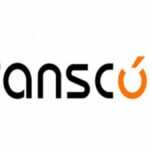By Hassan Zaggi
Family Planning 2030 (FP2030), the global family planning partnership has announced the location of its West African office in Abuja, Nigeria.
It would be recalled that FP2030 launched its second decade in 2021.
The newly created Abuja-based hub will be hosted by Population Council Nigeria and will serve North, West, and Central Africa.
FP2030 Executive Director, Dr. Samukeliso Dube and Harriet Birungi, Population Council’s Vice President of International Programs, formally launched the new hub in a video announcement and outlined their vision for the new hub’s work on family planning in Africa.
“Building on the strengths and successes of FP2020, we’re accelerating progress that ensures our efforts are country-led and remain globally connected,” said Dr. Dube.
“We know that with Population Council Nigeria as our host partner, we are very well placed to succeed,” he stressed.
The Population Council has been working with the Nigerian government and health organisations in Nigeria for more than five decades.
Population Council Nigeria is dedicated to meeting the needs of at-risk populations, including adolescent girls and young women and to promoting access to high-quality sexual and reproductive health, maternal health, and family planning services.
FP2030’s North, West, and Central African Hub is one of four new hubs to be launched this year, in addition to the existing North America and European Hub.
A second Africa hub has also been launched in Nairobi, Kenya and will work to strengthen family planning access and sexual and reproductive health and rights in East and Southern Africa.
A statement obtained by this newspaper disclosed that the other two hubs will be located in Asia and Latin America and each hub will coordinate and support country-specific activities, as well as linking these efforts to a strong regional and global network.
Both of the Africa hubs, the statement said, will be led by a Managing Director who will be in place by 1 July and who will oversee strategy and engagement, with the Washington DC-based staff to start handing over their portfolio of work to the regional hub staff as they come on board.
It is expected that the two African hubs will be fully operational in the third quarter of 2022.
According to the statement, the host organisation was chosen through a rigorous and transparent selection process led by members of FP2030’s Transition Oversight Group.
Population Council Nigeria is a well-established
and well-respected organization with a mission that aligns with the values of FP2030. Basing the hub in Abuja and within Population Council Nigeria will empower FP2030’s regional partners to better collaborate with and access the FP2030 network and will help deepen relationships across member countries.
“The Population Council has worked for nearly 70 years to address critical health and development issues related to family planning, reproductive health, and gender-based violence,” said Harriet Birungi, Population Council’s Vice President for International Programs.
“We are committed and deeply honoured to be selected as the host organization of the North, West and Central Africa hub of FP2030 and to collaborate with the United Nations Foundation in its ambitious goal of ensuring that millions of girls and women have access to use modern contraception,” he stressed.
The North, West, and Central African regional hub will cover 30 countries in the region and like the other regional hubs, it will include staff expertise in country engagement, youth partnerships, advocacy and accountability, high-impact family planning practices, as well as fundraising and communications.
It will provide support to FP2030 partners in the region with regards to developing their FP2030 commitments, as well as technical support in specific topical areas across the advocacy spectrum –notably with regards to the needs of youth, humanitarian crisis services and preparation, and health integration.
Marie Ba, Executive Director of the Ouagadougou Partnership Coordinating Unit (OCPU), praised the launch of a new FP2030 hub in West Africa and said that “FP2030 and the OPCU have had a long and collaborative partnership, together building a stronger family planning network in Africa. Having an FP2030 office in Abuja will only strengthen that collaboration, and we look forward to our continued work together,” the Executive Director, said.
Another key purpose of this regional hub will be to galvanise greater collaboration and coordination among partners across the region, which has been one of the longstanding roles of FP2030, but it expects these networks to become even stronger with regional hub office support. The ultimate aim is to connect these stronger regional networks to a global movement for family planning.
“It is our goal to foster a truly country-led commitment process not only by ensuring countries can set their own goals, but also to facilitate better and more consistent connections with other FP2030 partners in the region, creating stronger programs and accountability,” said Dr. Dube. “We believe regional hubs put countries and regional partners in the driver’s seat for agenda setting, monitoring progress and collaboration.”
The government of Nigeria launched its own national FP2030 commitment earlier this month, having been one of the original FP2030 commitment makers in 2012. The government has pledged to strengthen the integration of family planning into Nigeria’s socio-economic frameworks including Universal Health Care. The Nigerian government has further committed to increasing financing for family planning by allocating 1% of the National and State Health budgets annually to sexual and reproductive health by 2030.
Additionally, the government of Nigeria is committed to addressing social and gender norms hindering female agency, autonomy, and access to rights-based family planning as well as social norms impacting men, young people, and other vulnerable populations.



